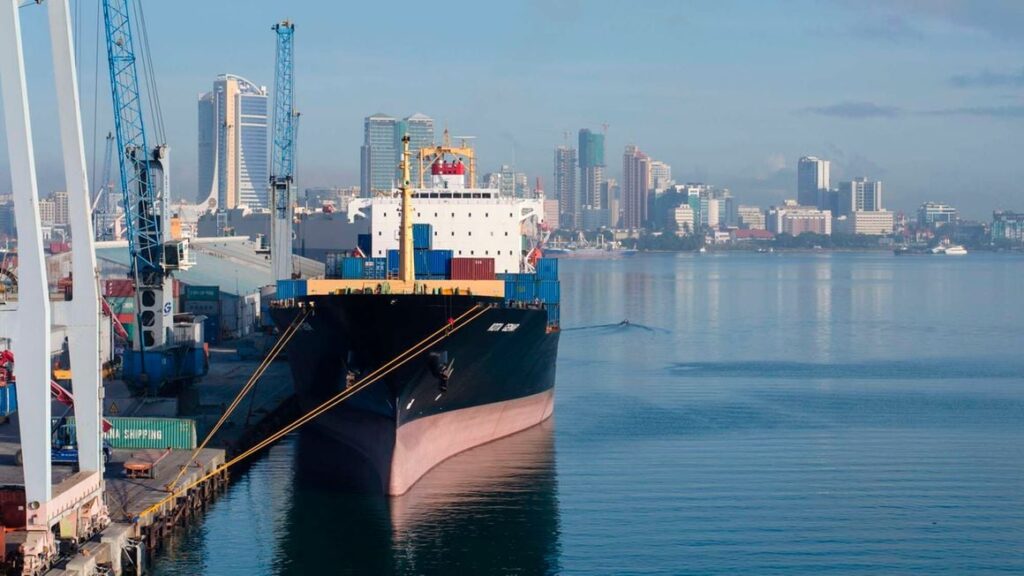- Tanzania has offered the Uganda National Oil Company (Unoc) to use the Dar es Salaam port for oil importation.
- This presents a strategic alternative amid the ongoing importation stalemate between Uganda and Kenya.
- The legal dispute between Uganda and Kenya over oil importation policies is pending before the East African Court of Justice (EACJ), with indications that Uganda may withdraw the case.
Tanzania has stepped forward with an enticing proposition that Kampala finds hard to ignore, especially regarding the ongoing deadlock in Nairobi-Kampala oil imports.
Tanzania has extended an offer to the Uganda National Oil Company (Unoc) to utilise the Dar es Salaam port for its fuel importation needs. This development comes as Uganda explores alternatives in response to Kenya’s steadfast position on Kampala’s oil importation demands.
Uganda’s grievance at the East African Court of Justice (EACJ) remains pending amid these unfolding events, casting a shadow of uncertainty over the diplomatic impasse.
The court has not yet scheduled the case for determination, highlighting the tensions between Uganda and Kenya over oil importation policies. According to sources, Kenya keenly anticipates Uganda’s openness to withdrawing the case.
This legal tangle highlights the complex interplay of regional trade laws, national interests, and the vital role of the EACJ in mediating disputes within the East African Community.
In a bid to resolve the standoff and ensure the smooth importation of petroleum and other goods, Presidents William Ruto of Kenya, Yoweri Museveni of Uganda, and Samia Suluhu of Tanzania convened in Zanzibar for a rare tripartite meeting.
Initiated at Uganda’s request, this high-level dialogue is set to highlight the urgency and importance of finding a mutually beneficial solution to the oil importation deadlock.
Read also: Uganda National Oil Company begins fuel sales after Kenya fallout
Uganda’s Unoc asked to explore oil import via Dar Port
Tanzania’s proposal to the Unoc represents a watershed moment that could redefine the region’s energy industry. The offer from President Samia Suluhu Hassan’s administration, allowing Unoc to use the Dar es Salaam port for oil importation, is a strategic pivot given that Uganda’s traditional import routes through Kenya continue to face challenges.
This development underscores Tanzania’s increasing role as a regional trade facilitator. It highlights the growing importance of flexible, multi-nodal logistics networks in ensuring energy security and economic resilience in East Africa.
Tanzania’s initiative could significantly enhance trade flows within the EAC, fostering closer economic ties and interdependence among member states. By providing an alternative route for Uganda’s oil imports, Tanzania is not just offering a solution to a current impasse but is also paving the way for more diversified and resilient trade corridors in the region. This move could inspire similar agreements, leading to more integrated and cooperative regional trade mechanisms.
The potential rerouting of Uganda’s oil imports through the Dar es Salaam port is more than a logistical adjustment; it is a strategic move towards greater regional energy security. With the global oil market’s volatility and the strategic imperative of ensuring a stable energy supply, Tanzania’s offer provides Uganda—and potentially other landlocked countries in the region—with a vital alternative to mitigate the risks associated with reliance on a single import route.
This diversification of import channels can protect East African countries against geopolitical tensions and logistical disruptions, ensuring a more stable energy supply.
The unfolding scenario also illustrates the critical role of diplomacy in facilitating economic development and cooperation in East Africa. The high-level talks in Zanzibar, involving leaders from Kenya, Uganda, and Tanzania, signify a collective recognition of the need for dialogue, compromise, and collaboration in addressing regional challenges.
Such diplomatic engagements are essential in crafting policies that support mutual growth, stability, and prosperity, reinforcing the notion that shared challenges require shared solutions.
As Tanzania positions itself as a key player in regional trade and diplomacy, the implications of its offer to Uganda extend far beyond the immediate logistical considerations. This gesture has the potential to catalyze broader discussions on regional infrastructure, energy security, and economic integration, marking a pivotal step towards a more connected, resilient, and prosperous EAC.
Despite the Kenya-Uganda stalemate, Tanzania’s proposal to Uganda represents a significant shift in regional trade dynamics, offering Unoc a viable alternative through the Dar es Salaam port.
As the EACJ deliberates on the legal case, the willingness of Uganda to potentially withdraw it indicates a move towards a diplomatic resolution. The engagement of Presidents Ruto, Museveni, and Samia in Zanzibar highlights a collective effort to ensure regional stability and economic prosperity, emphasizing the importance of strategic partnerships and legal frameworks in fostering trade and diplomacy in East Africa.
Read also: UK Injects $7.7 Million to Boost Zambia-Tanzania Trade Route Upgrade











